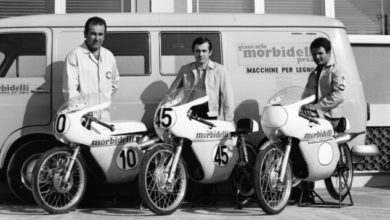MIC creates standard for data transfer – March 13, 2006
INDIANAPOLIS — After several years of work and millions of dollars in funding, the Motorcycle Industry Council (MIC) launched a data communications program at the Dealer Expo here that promises to greatly improve digital business communications between dealers and their suppliers.
Called the Powersports Standard Protocol (PSP), the Internet-based program is designed to simplify the way dealers do business with their suppliers by creating an industry-wide digital communications standard. The standard enables a dealer using a PSP-enabled dealership management system (DMS) to conduct a transaction entirely within that DMS. This saves time and employee costs.
The program is compatible with the auto industry’s Standards in Technology for Automotive Retail (STAR), which will ultimately benefit companies doing business in both industries.
“We’ve done a lot of testing,” says Pat Murphy, MIC’s vice president of research and technology standards, “and now we’re in the rollout mode.”
The big achievement, says Murphy, is that the infrastructure has been built. “We know the process; we know how to manage change; and we’ve agreed how to transport data. Now it’s just choosing which data to transport.”
The first phase of the PSP is limited to parts transactions. Under the PSP process, dealers can order parts, check parts pricing and inventories, and track shipments.
Subsequent phases could enable dealers to process warranty claims and conduct other transactions, such as product registrations, credit applications and the processing of financial statements — all more simply than before. The timetable for development of these other capabilities is being established by the MIC Business Advisory Committee. “We’re narrowing down the short list with the committee now,” says Murphy.
Plans also call for the program to be expanded to all products, perhaps even for non-MIC products, such as snowmobiles and watercraft, and nonpowersports items, such as outdoor power equipment. “The bottom line,” says Murphy, “is that companies really would like to have a single standard for all of their products. If other industries would like to take advantage of the work that has been done within our industry, we are prepared to work with them.”
Even though the PSP standard is available on the Internet, some effort is required to adopt it. Not everyone will participate initially, although many are evaluating the program.
Participating companies who have signed support agreements include Kawasaki, Honda, Suzuki, Custom Chrome, Motorcycle Stuff, Southern Motorcycle Supply, ADP/Lightspeed, C-Systems Software and MIC Systems Software. A company may participate either as a subscriber, who simply uses the standard, or as a partner, who participates in development.
Dealer Participation
The MIC tested PSP with real dealers and DMS providers and received positive feedback. “It makes it a heck of lot easier for the customer — and for employees,” says Gary Roundy of the large Fun Bike Center dealership San Diego. “It’s going to be a tremendous tool. I can see where this is really going to help the dealer.”
While dealers are major beneficiaries of the PSP standard, it is suppliers and DMS providers that adopt the standard and make system changes to accommodate it. Appropriately, DMS providers will inform its customers of their individual policies with respect to the standard.
What has been the biggest bottleneck in the dealer’s ordering process? He’s forced to move between the dealer management system and other computer programs when placing an order. PSP solves this problem because it lets the dealer stay within the DMS by creating an intermediate step between the dealer and the supplier. That intermediate module “translates” the DMS language into the standard PSP language that is understood by the supplier software.
For example, the dealer using a PSP-enabled DMS can create his order file and send it to the supplier, a two-step process. By comparison, a nonparticipating dealer must create the order and save it outside the DMS. Then he must leave the DMS and log into the supplier’s Web site. After placing his order there, he has to log out, re-enter his DMS and key in the new data. It’s time consuming, can lead to errors and requires employee training in multiple systems — the DMS and the system operated by each of the dealer’s suppliers.
Early testing revealed that parts ordering via PSP is at least six times faster than the current approach, says Murphy.
Fees are based upon a sliding scale tied to a company’s annual gross revenues. The fee structure and more detailed information may be found on the PSP Web site at psp.mic.org. psb




